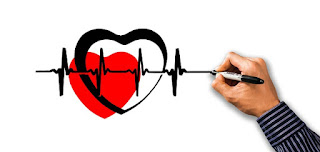Heart rate and blood pressure are two essential measurements that provide valuable insights into cardiovascular health. They are closely interconnected and play a significant role in maintaining optimal physiological function. Understanding the relationship between heart rate and blood pressure is crucial for comprehending cardiovascular health, identifying potential concerns, and making informed lifestyle choices. In this article, we will delve into how heart rate and blood pressure interact, their connection, and their impact on cardiovascular well-being.
The Connection Between Heart Rate and Blood Pressure:
Heart rate and blood pressure are intrinsically linked through the cardiovascular system. Here's how they are connected and how they interact:
-
Cardiac Output: The primary connection between heart rate and blood pressure lies in cardiac output. Cardiac output is the amount of blood pumped by the heart per minute. It is calculated by multiplying heart rate (number of heartbeats per minute) by stroke volume (the amount of blood pumped with each heartbeat). When the heart rate increases, cardiac output also increases, resulting in a corresponding elevation in blood pressure.
-
Sympathetic Nervous System: The sympathetic nervous system regulates heart rate and blood pressure. In response to various stimuli, such as stress or physical activity, the sympathetic nervous system releases epinephrine (adrenaline), which increases heart rate and constricts blood vessels. As heart rate rises, blood pressure tends to follow suit due to increased force exerted on the arterial walls.
-
Exercise and Physical Activity: During exercise or physical activity, heart rate increases to meet the demands of the body. This rise in heart rate serves to deliver more oxygenated blood to the working muscles. Concurrently, blood pressure also increases to ensure adequate perfusion to the organs and tissues. However, in individuals with hypertension or underlying cardiovascular conditions, excessive increases in heart rate and blood pressure during exercise may pose risks and should be monitored closely.
Impact on Cardiovascular Health:
-
Hypertension: Persistently high blood pressure (hypertension) can lead to an increased risk of heart disease, stroke, and other cardiovascular complications. High heart rate can contribute to elevated blood pressure, placing additional strain on the heart and blood vessels over time.
-
Fitness Level: Resting heart rate is an indicator of overall cardiovascular fitness. Regular exercise and physical activity can lower resting heart rate, indicating a more efficient heart that pumps blood with fewer beats. As heart rate decreases, blood pressure tends to normalize, reducing the risk of cardiovascular diseases.
-
Stress and Emotional Well-being: Stress and emotional states can impact both heart rate and blood pressure. During times of stress or anxiety, heart rate and blood pressure may temporarily rise. Chronic stress can lead to sustained elevation of heart rate and blood pressure, potentially contributing to long-term cardiovascular complications.
The relationship between heart rate and blood pressure is vital for understanding cardiovascular health. Heart rate and blood pressure are interconnected through mechanisms such as cardiac output and the sympathetic nervous system. Changes in heart rate can significantly impact blood pressure levels and vice versa. By recognizing this relationship, individuals can take proactive steps to maintain a healthy heart rate and blood pressure through regular exercise, stress management, and adopting a heart-healthy lifestyle. Consultation with healthcare professionals is crucial for individuals with underlying cardiovascular conditions to ensure proper monitoring and management of heart rate and blood pressure. By prioritizing cardiovascular health, we can strive for a healthier, more vibrant life.

ความคิดเห็น
แสดงความคิดเห็น